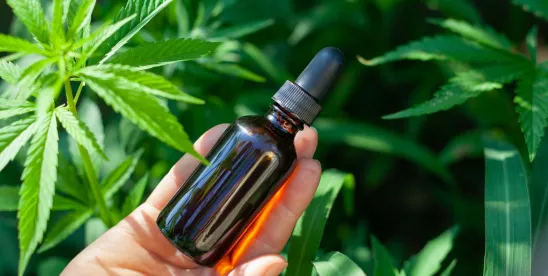On Wednesday, March 20, 2024, a bipartisan coalition of 21 attorneys general from across the United States took the significant step of urging Congress to tackle what they describe as a “health and safety crisis” precipitated by the 2018 Farm Bill’s proliferation of “intoxicating hemp products.” This request was contained in a letter dispatched that day to the heads of the agriculture committees of both congressional chambers including Chair Glenn Thompson, Chair Debbie Stabenow, and Ranking Members David Scott, and John Boozman. The attorneys general pointed to the 2018 federal Farm Bill, which by legalizing low-THC hemp nationwide, legalized certain hemp-derived intoxicating products that closely mimic the psychoactive effects of cannabis.
The crux of the issue lies in the 2018 Farm Bill’s definition of legally permissible "hemp," which is based solely on its concentration of Delta-9-THC, the primary psychoactive compound in cannabis, while neglecting other THC isomers such as Delta-8 THC and Delta-10 THC. This has led to a burgeoning market, estimated at a staggering $28 billion, where cannabis-equivalent products freely circulate, irrespective of individual states' decisions on cannabis legalization. The attorneys general argue these products pose a substantial risk to their citizens by potentially subverting regulations and consumer protections in jurisdictions where adult-use legal cannabis programs are firmly established.
Despite the diverse group of signatories, led by Republican attorneys general Todd Rokita (R-IN) and Tim Griffin (R-AR), and including Democratic counterparts Michelle Henry (D-PA) and Keith Ellison (D-MN), the letter troublingly refrains from suggesting explicit policy remedies. This initiative follows closely on the heels of a formal legal opinion issued by Arizona’s Democratic attorney general, Kris Mayes—who notably did not sign the Wednesday letter—stating that unauthorized retailers cannot lawfully vend intoxicating products derived from hemp despite federal permission from the 2018 Farm Bill.
State responses to hemp-derived intoxicating products vary widely. Some, like Oregon and Colorado, where recreational marijuana is legal, have sought to outright ban substances such as Delta-8, while others, including Michigan, Minnesota, and Maryland, aim to incorporate them into their adult-use cannabis regulatory frameworks. In states where cannabis remains illegal, approaches to Delta-8 THC diverge significantly, with Arkansas facing federal court injunctions against its ban, and Kentucky and Tennessee allowing the legal sale of such products to adults over 21. And states like Pennsylvania and New Jersey have adopted a laissez-faire stance, neither effectively regulating nor banning these intoxicating hemp products.
It is evident that a more uniform and pragmatic approach toward regulating intoxicating hemp products is an urgent need, akin to the regulatory frameworks established for alcohol. This would entail restricting sales to minors, establishing rigorous standards for product manufacturing and production, and mandating comprehensive labeling that clearly specifies the dosage and contents of these products. By proactively implementing these measures, states like New Jersey and Pennsylvania could pioneer a sensible regulatory scheme that ensures public safety and consumer protection without federal intervention. As the 2024 Farm Bill looms on the horizon, it is imperative for these states to leverage this window of opportunity to establish a robust regulatory framework that could serve as a model for others, thereby preempting the risks associated with the current regulatory vacuum and setting a precedent for responsible governance in this rapidly evolving sector.



 />i
/>i

